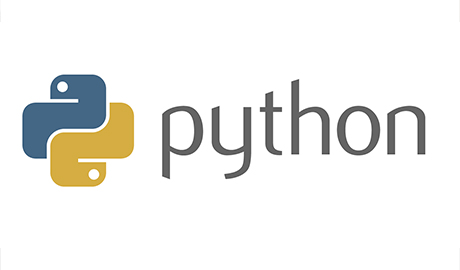Python Course
- 1 Introduction to python programming
- 2 An overview of scripting and the pragmatic development approach.
- 3 An overview on python interpreter
- 4 An overview on Python development tools
- 5 bpython, vim-python and IDLE
- 6 Python implementations (features and differences):
- 7 Cpython, Jython, IronPython, PyPy, Stackless Python
- 8 Python 2 vs. Python 3 (feature differences)
- 1 Numbers and expressions
- 2 Variables and statements
- 3 Conditional statements and loop
- 4 Handling user input
- 5 An overview of built-in functions and modules
- 6 Python syntax, style and coding conventions
- 7 Basic introspection using type () and dir () function
- 8 Types, Classes and dynamic typing, Duck typing
- 1 Common sequence operations
- 2 Manipulation of Lists
- 3 Manipulation of Tuples
- 4 Manipulation of Sets
- 1 Introduction to dictionaries
- 2 Creating, assigning, updating dictionaries
- 3 Dictionary operators, functions and built-in methods
- 1 Creating user-defined functions
- 2 Passing functions
- 3 Formal arguments
- 4 Variable-length arguments
- 5 A walk-through on various built-in functions
- 1 Using the built-in str, Unicode, byte array and buffer types
- 2 Binary data representation using array and struct module
- 3 Using string, difflib and text wrap module
- 1 An overview of strings in python
- 2 String operators
- 3 Built-in string manipulation functions
- 4 Built-in string methods
- 5 Special string features in python
- 6 Built-in modules for string handling
- 7 Unicode strings and byte array
- 1 Map / Reduce / Filter algorithms
- 2 Itertools and Functools
- 1 Introduction to re module
- 2 Compiling regular expressions to Pattern objects
- 3 Patterns, Matches and Groups
- 4 Understanding Regular Expression syntax
- 5 Regex patterns notations
- 6 Metacharacters, Metasymbols and escape sequences
- 7 Character classes and wild-cards
- 8 Quantifiers
- 9 Grouping and alternation
- 10 Optimizing regular expressions and performance considerations
- 11 Tips and techniques - example use cases for regular expressions
- 12 Pattern modifiers
- 13 Pattern substitution
- 1 Decorator patterns and built-in decorators
- 1 An overview on open () function, 'file' type methods and using 'with' clause
- 2 Using line cache for random access to text files
- 1 File I/O operations
- 2 Built-in file and directory handling libraries
- 1 Introduction to OOP using python
- 2 Classes and class attributes
- 3 Instances and instance attributes
- 4 Binding and method invocation
- 5 Composition, Sub classing and Derivation
- 6 Inheritance
- 7 Built-in functions for classes, instances and other objects
- 8 An overview of built-in python classes and modules
- 1 Python OO architectural overview
- 2 Python OO paradigms and meta programming concepts
- 3 An overview on Python special methods:
- 4 __new__(), __init__(), __del__(),
- 5 __str__(), __repr__(), __len__(), __nonzero__()
- 6 __cmp__(), __eq__(), __ne__() and family
- 7 Operator overloading
- 8 Dictionary and List emulation
- 9 Accessor methods - __getattr__(), __setattr__(),
- 10 __delattr__()
- 11 Callable methods - __call__()
- 12 Iterator methods - __iter__()
- 1 Creating generators and iterators using co-routines
- 2 Implementing decorators
- 3 List comprehension, Set comprehension
- 1 Introduction to exceptions
- 2 Detecting and handling exceptions
- 3 Exceptions as Strings and Classes
- 4 Raising exceptions
- 5 Creating exceptions
- 6 Standard exceptions
- 1 Using the sys module
- 2 sys.argv, sys.path, sys.version
- 3 An overview on __builtin__ and __future__ modules
- 4 String related modules
- 5 String
- 6 re
- 7 Using the os module
- 8 Filesystem/directory functions
- 9 Basic process management functions
- 10 Recursive directory iteration using os. Walk
- 11 Using the os. Path module
- 12 Determining base name, dir name, path manipulation
- 13 File type/size/timestamp and other stat determination
- 14 Using the time and date time modules
- 1 Creating modules
- 2 Variable scope
- 3 Understanding namespaces
- 4 Importing modules and module attributes
- 1 Multi-tasking using threading. Thread
- 2 Multi-tasking using multiprocessing. Process
- 3 Parallel processing using multiprocessing. Pool
- 1 Using unittest
- 2 Using profiler in python
- 3 Using pdb
- 1 Using the subprocess module
- 2 Using pexpect module
- 1 Practice exercises on dictionaries, functions and modules
- 2 Practice exercises on file operations
- 3 Practice exercises on logging, os related features



